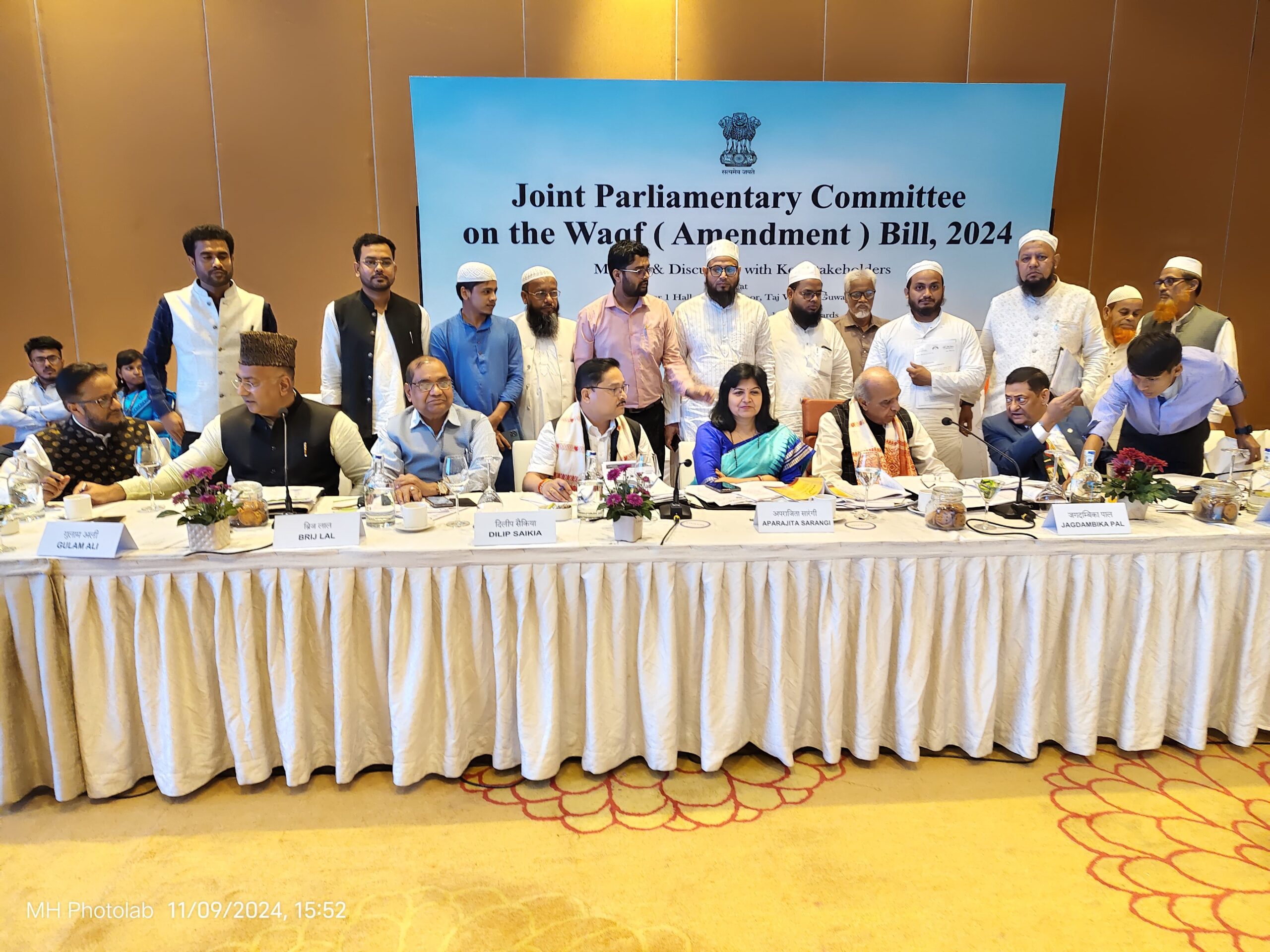
Meeting with JPC Central Committee: “Waqf Amendment Bill 2024 Must Be Repealed,” says NEISPC
Meeting with JPC Central Committee: “Waqf Amendment Bill 2024 Must Be Repealed,” says NEISPC
EC News Desk
11/11/2024
On November 9, 2024, a crucial meeting was held at the Vivanta Hotel in Guwahati regarding the “Waqf Amendment Bill 2024.” The central delegation of the Joint Parliamentary Committee (JPC) attended the event to formally gather the views of the people of Assam and exchange opinions with Muslim leaders on the Waqf Bill. Representatives from various religious organizations in Assam, including North East India Emarat-e-Shari’ah, Nadwatut-Tameer, Ahle Sunnat Wal Jamaat, and Jamaat-e-Islami, as well as other stakeholders, participated in the discussion. Additionally, the North East India Shariah Protection Council (NEISPC), an organization actively working to protect Muslim personal law and constitutional rights in Northeast India, was present at the meeting. A delegation led by NEISPC’s President, Advocate Abu Yusuf Choudhury from the Guwahati High Court, expressed strong opposition to the Waqf Amendment Bill.
Advocate Abu Yusuf Choudhury raised critical questions with the JPC, asking, “Why has the representation of the Waqf Board been reduced in the Waqf Amendment Bill 2024? Why is all power being handed over to the District Collector? Waqf is purely an Islamic matter; why is there a provision to appoint non-Muslims to the Waqf Board?” He further questioned, “Why has the concept of ‘Waqf by user’ been completely omitted in the new bill? Have the illegally acquired Waqf properties under state or central government control for years been returned to the Waqf Board?”
Advocate Choudhury also remarked, “This bill has been drafted without proper consultation with the stakeholders involved in the Waqf system and the Muslim community. It contains provisions that contradict Islamic principles and alter the core concept of Waqf. The bill was introduced in Parliament with the aim of interfering in Muslims’ religious rights and seizing Waqf property. We cannot tolerate any form of interference in Islamic practices by the BJP government.”
Dr. Mizajur Rahman Talukdar, an assistant professor at Guwahati University, stated, “The bill gives government officials excessive control over Waqf properties, which would undermine Muslims’ constitutional rights in managing these properties and open the door to corruption. Additionally, the proposed ‘Waqf Tribunal’ would add a new bureaucratic layer, which may not always work in the best interest of beneficiaries and could cause unnecessary delays.”
He added, “The bill is nothing short of direct interference in the rights of minority communities, especially Muslims. Imposing any rule that contradicts traditional and religious values is unacceptable.”
Referring to the constitutional rights of religious freedom for minorities, he asserted, “The proposed amendments to the 1995 Waqf Act are infringing upon the constitutional rights of minorities. Therefore, this amendment bill must be repealed.”
Also present at the meeting were prominent figures such as Hafiz Rashid Ahmed Choudhury, a respected advocate of the Guwahati High Court; Dr. Nazmul Islam; Maulana Naim Uddin Choudhury; Advocate Mahbubul Hasan Laskar of the Guwahati High Court; executive member Advocate Taher Ahmed Choudhury; Mizanur Rahman; and Ahmed Shakir, among others.
You May Also Like
 Breaking News
Breaking NewsIsrael’s confession of Killings of Palestinians! (War in the name of ceasefire, The Board of Peace is a Shield for Israel)
Israel’s confession of Killings of Palestinians! All talk of peace is just a lie...
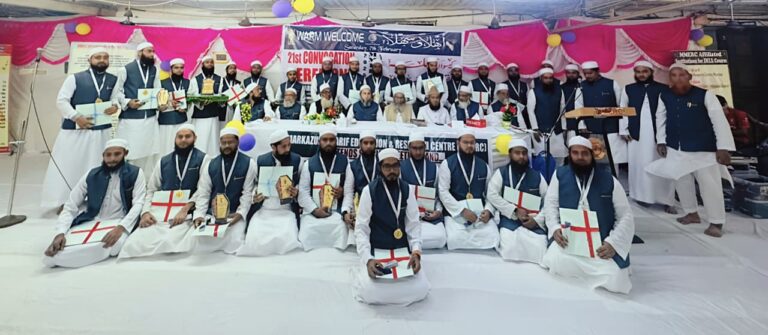 Breaking News
Breaking NewsGrand Convocation Ceremony Held at MMERC, Mumbai
Grand Convocation Ceremony Held at MMERC, Mumbai EC News Desk 7 February 2026 Mumbai:...
 Breaking News
Breaking News₹10 Lakh Government Grant Sanctioned under Madrasa Modernisation Scheme
₹10 Lakh Government Grant Sanctioned under Madrasa Modernisation Scheme Applications open until November 13;...
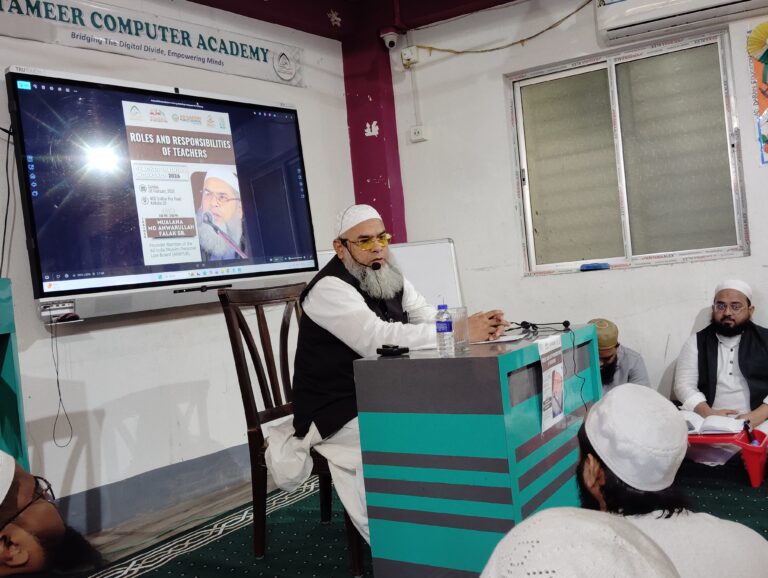 Breaking News
Breaking NewsAd Darain Education Centre Successfully Conducts 3 Days Teacher Training Workshop
Ad Darain Education Centre Successfully Conducts 3 Days Teacher Training Workshop EC News Desk...
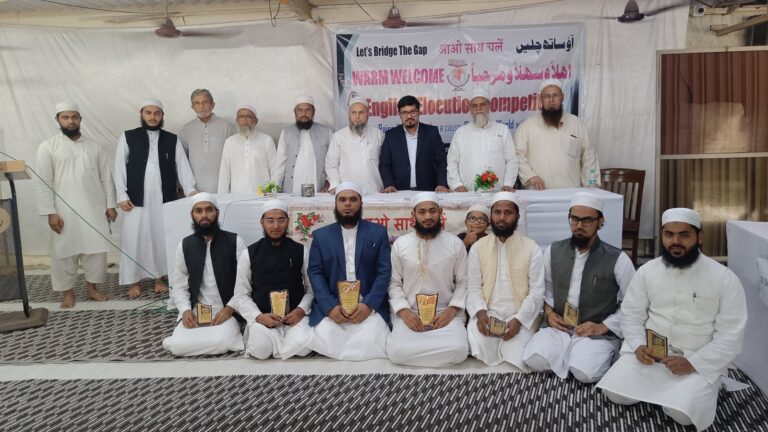 Breaking News
Breaking News“A Speech Without Audience Engagement and Intellectual Depth Remains Ineffective”_ Suhail Masood
“A Speech Without Audience Engagement and Intellectual Depth Remains Ineffective”_ Suhail Masood EC News...
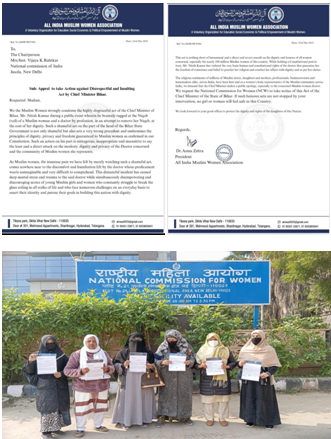 Breaking News
Breaking NewsMuslim Women Delegation Meets National Commission for Women, Submits Complaint Against Bihar Chief Minister
EC News Desk 23/12/2025 A delegation of Muslim women led by Mrs. Mamdooha Majid,...

Comments (3)
Leave a Comment
What's up to every one, the contents existing at this website are
really remarkable for people experience, well,
keep up the good work fellows.
What's up to every one, the contents existing at this website are really remarkable for
people experience, well, keep up the good work fellows.
It¦s actually a cool and useful piece of information. I¦m glad that you just shared this helpful information with us. Please stay us informed like this. Thanks for sharing.